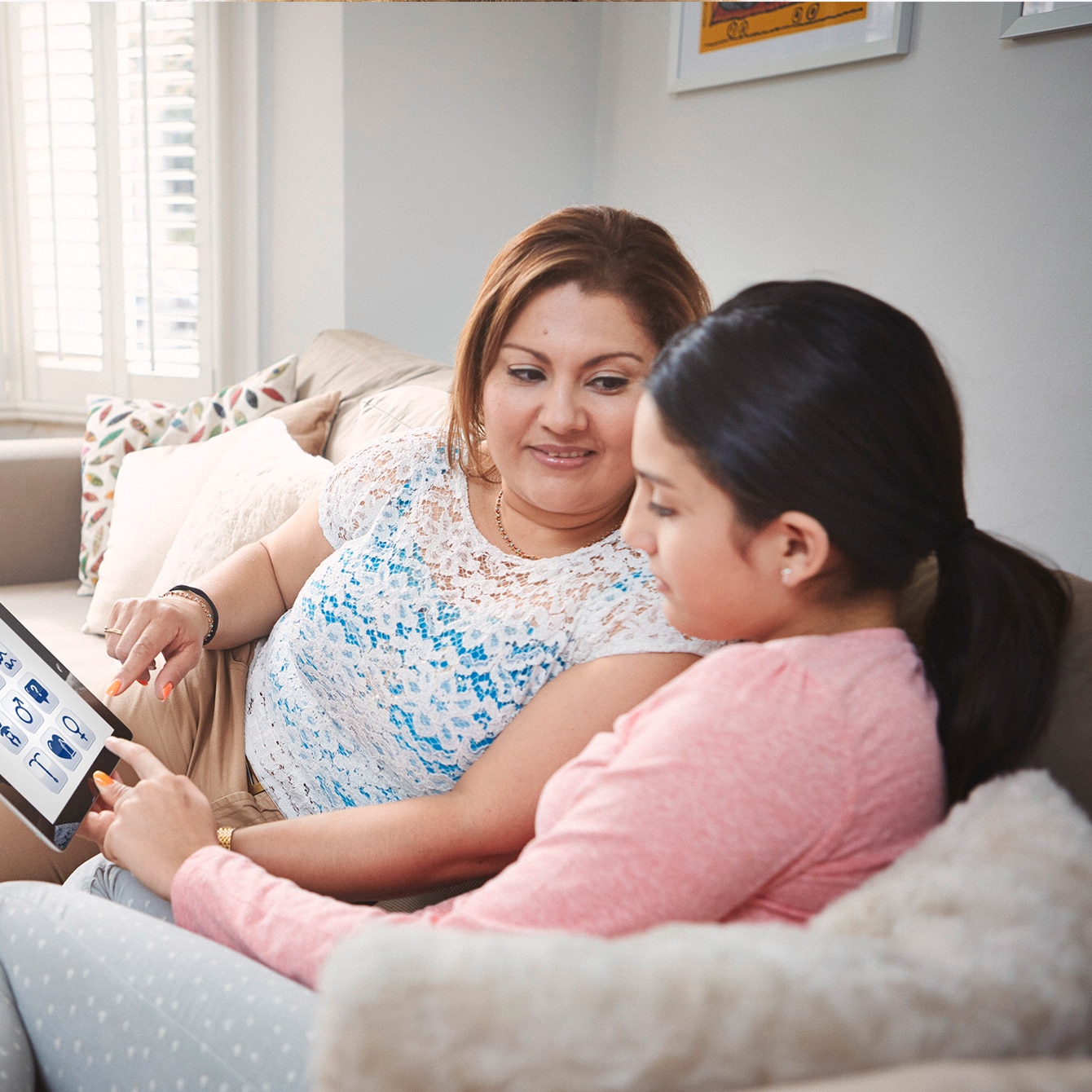Music videos are increasingly sexualizing and objectifying women, as research from institutes including the American Psychological Association (PDF) (801 KB) and the UK’s Home Office has shown. So we’ve put together an action checklist to help you start a conversation with your child about how women are portrayed in music videos.
Objectification of women in music videos
Watch any music channel and you're likely to see stars singing suggestive lyrics, dressed in few clothes and wearing lots of make-up. Close-ups of pouting lips, wiggling bottoms, shimmying cleavages and bare, toned stomachs feature heavily too, reinforcing the idea that women have to look – and behave – a certain way to be attractive.
"My daughter sees stuff on telly and thinks she has to look like that," says Jo, a parent who spoke in a recent Home Office inquiry into the sexualisation of childhood. "It’s the music videos for her – they’re half naked – do they really need to do that to sell a song?"
If you’ve watched any music videos recently you may well feel the same, but these videos are an ever-increasing part of young people’s lives. The Home Office inquiry reported that in 2002 young people watched an estimated nine hours of music videos each week. Fast-forward to 2010, and this had jumped to a shocking two-and-a-half hours each day.
Meanwhile, Ofcom’s research into media and children reported in 2012, that 40% of 12- to 15-year-olds watch or download music videos every week, with ready access via mobile devices.

The negative impact of music videos on girls’ self-esteem
Researchers at Ryerson University, Toronto, looked into the impact on young women by asking them to watch five popular music videos featuring a stereotypically 'perfect-looking' woman. Participants were shown the videos interspersed with advertising to simulate reality as closely as possible.
The study was split into three groups, each of which saw different types of advertising between the videos. Some watched normal ads, some watched ads without people in them and some viewed Dove’s 'Evolution' ads, created to address the issue of body confidence.
The result? Compared to viewing normal television, music videos significantly lowered the young women’s satisfaction with their appearance – but watching the Evolution ad reversed this effect. By helping girls become more media savvy, and making them aware of how images are manipulated, it seems it’s possible to counteract the damage to some degree.
The UK government was so concerned about the impact of music videos on girls’ body confidence that it commissioned the Home Office inquiry that Jo spoke at. ‘The Sexualisation of Young People Review’ recommended age restrictions for music videos, and gave broadcasters guidance on when to show them - but this is only part of the solution.
Help your children be smart about female stereotypes
It’s unrealistic to police young people's viewing habits all the time. The days of consuming the latest hits through the top 40 on the radio or a special two hours of TV on a Saturday morning are long gone. Today’s youngsters have music and videos constantly available to them through many devices and platforms.
Instead of trying to limit their access, help your child build knowledge and understanding about music videos so they can become savvy and protect their body confidence. Accentuate the positives too. Not all music videos are damaging to self-esteem, and an interest in singing or dancing can benefit young people physically, mentally and socially.
To protect privacy we’ve changed the names of people whose stories we tell on these pages, but the stories are genuine.




